Masks and Reality in Ancient Athenian Drama
September 26th, 2019
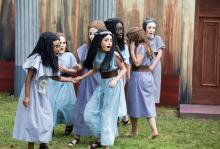
In her lecture Dr. Amy R. Cohen, Professor of Classics and Theater at Randolph College, will look at both historical and contemporary use of masks to stage ancient Greek tragedy and comedy. Professor Cohen has developed a specialty in staging Greek drama in outdoor theaters with masks that she and her students have made. While Professor Cohen’s original exploration of masks sought to identify and recreate authentic-practices in ancient mask making, in recent years she and her students have begun to explore ways in which modern technology, such as 3-D printing, might assist in making masks for staging ancient plays.
CANCELLED 2019 Rose Wohlgemuth Weisman Women’s Voices Lecture: A Conversation with Joy Harjo
October 1st, 2019
Critically-acclaimed Indigenous poet Joy Harjo discusses her work with poet Sarah Gridley, Associate Professor in the Department of English, and Advocate Susan Dominguez, SAGES Teaching Fellow. Harjo, a member of the Mvskoke/Creek Nation, is the author of several books of poetry, as well as collections of interviews and conversations, children’s books, and collaborative art texts. She is the 23rd U.S. poet laureate and the first Native American poet to serve in that position. Among her many honors, Harjo has received the PEN USA Literary Award for Creative Non-Fiction, the American Book Award, and the Jackson Poetry Prize. A renowned musician, Harjo performs with her saxophone nationally and internationally, solo and with her band, the Arrow Dynamics.
Faculty Work-in-Progress: Hamlet’s Earworms
October 3rd, 2019
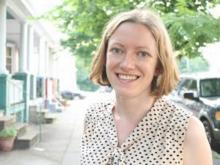
In her talk, Maggie Vinter, Associate Professor in the Department of English, explores earworms and other sonic echoes in Hamlet. Outside the world of the play, earworms from Hamlet continue to replicate as the various quotes that maintain cultural significance detached from the plot. The behavior of these fragments inside and outside the play should encourage us to consider the importance of automatic memory and reflexive, involuntary bodily responses to creating and consuming literature.
The Secrets Between Us: A Conversation with Thrity Umrigar
October 7th, 2019
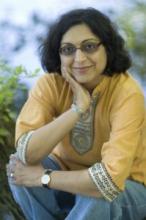
Thrity Umrigar, Professor in the CWRU Department of English, will talk about the inspiration for her new novel and the challenges of writing a sequel. She is the best-selling author of the novels Bombay Time, The Space Between Us, If Today Be Sweet, The Weight of Heaven, The World We Found and The Story Hour. She is also the author of the memoir, First Darling of the Morning. Her books have been translated into several languages and published in over fifteen countries.
Graduate Work-in-Progress – Birthing Nature: Why One Childbirth Drug Was Natural and Another Was Not
October 15th, 2019
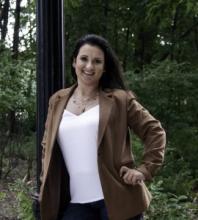
Some of the greatest obstetric innovations have been pharmaceutical pain relief methods and labor inducing drugs. However, the existing historical narrative focuses on technological and surgical interventions in childbirth. In her talk, Naomi Rendina, Phd candidate in the Department of History, shifts the focus from surgical and technological interventions in birth to pharmaceutical interventions and how drugs used to induce labor reshaped American childbirth.
Faculty Work-in-Progess – Bodies of the Nation: U.S. Disaster Identification in the Early Cold War
October 29th, 2019
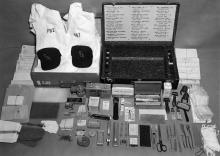
The years following WWII witnessed a dramatic shift in disaster victim identification in the United States. What had once been a fragmented effort proscribed by local resources developed into an orderly and scientific system bolstered by national networks of specialists. In the 1940s, however, police, coroners, and physicians around the country were inspired by their firsthand experiences with mass-fatality events to find more efficient and objective means of identification and to develop new methods for reading the body. In her talk, Vicki Daniel, an Instructor in the Department of History and SAGES Teaching Fellow, will discuss how these new systems of identification were shaped by the larger social and political context of the Cold War to transform disaster identification into a symbolic performance of the state’s ability to protect its citizens in times of political uncertainty and corporeal threat.
Faculty Work-in-Progress – Domestic Horrors in the Age of Revolution: Acid Throwing in Leonora Sansay’s Secret History; or, The Horrors of St. Domingo
November 5th, 2019
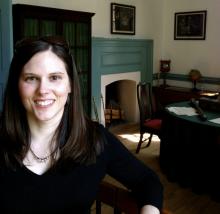
In recent years Europe and Asia have seen a surge in acid attacks that has increased public awareness of the highly gendered, racial, and political elements of this particularly gruesome crime. Acid attacks, or acid throwing, however, has a long history, though it is one that isn’t well documented. In this talk, Caitlin Kelly, Lecturer in SAGES and the Department of English, explores a reference to acid throwing in Leonora Sansay’s 1808 novel Secret History; or, the Horrors of St. Domingo that has thus far been overlooked by scholars. Following the trade routes from France to Philadelphia to the Caribbean, Kelly traces acid throughout the Atlantic world during the Age of Revolutions, offering an interpretation of the novel that gives new significance to Sansay’s contributions to our understandings of the Haitian Revolution, literary history, and women’s lives during the period.
Faculty Work-in-Progress – Domestic Horrors in the Age of Revolution: Acid Throwing in Leonora Sansay’s Secret History; or, The Horrors of St. Domingo
Tue, Nov 5 2019, 4:30 PM
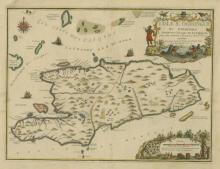
In recent years Europe and Asia have seen a surge in acid attacks that has increased public awareness of the highly gendered, racial, and political elements of this particularly gruesome crime. Acid attacks, or acid throwing, however, has a long history, though it is one that isn’t well documented. In this talk, Caitlin Kelly, Lecturer in SAGES and the Department of English, explores a reference to acid throwing in Leonora Sansay’s 1808 novel Secret History; or, the Horrors of St. Domingo that has thus far been overlooked by scholars. Following the trade routes from France to Philadelphia to the Caribbean, Kelly traces acid throughout the Atlantic world during the Age of Revolutions, offering an interpretation of the novel that gives new significance to Sansay’s contributions to our understandings of the Haitian Revolution, literary history, and women’s lives during the period.
2019 Walter A. Strauss Lecture Series – The Author in the Text: A Brief History
November 11th, 2019
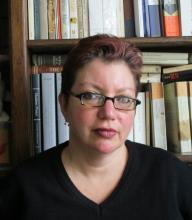
In this series of lecture, Elisabeth Ladenson, Professor of French and Romance Philology at Columbia University, will offer a brief history of the place of the author in literary interpretation, along with two salient cases in which the author’s biography seems to be inseparable from the understanding of their works: Marcel Proust and Colette. This lecture series, in memory of Walter A. Strauss (1923-2008), who was the Elizabeth M. and William C. Treuhaft Professor of Humanities, is generously supported by funds provided by the Paul Wurzburger Endowment.
2019 Walter A. Strauss Lecture Series – Colette at the Gas Station: The Woman Author
November 13th, 2019

In this series of lecture, Elisabeth Ladenson, Professor of French and Romance Philology at Columbia University, will offer a brief history of the place of the author in literary interpretation, along with two salient cases in which the author’s biography seems to be inseparable from the understanding of their works: Marcel Proust and Colette. This lecture series, in memory of Walter A. Strauss (1923-2008), who was the Elizabeth M. and William C. Treuhaft Professor of Humanities, is generously supported by funds provided by the Paul Wurzburger Endowment.
- Home
- Events
- Past Events
- 2019-2020

